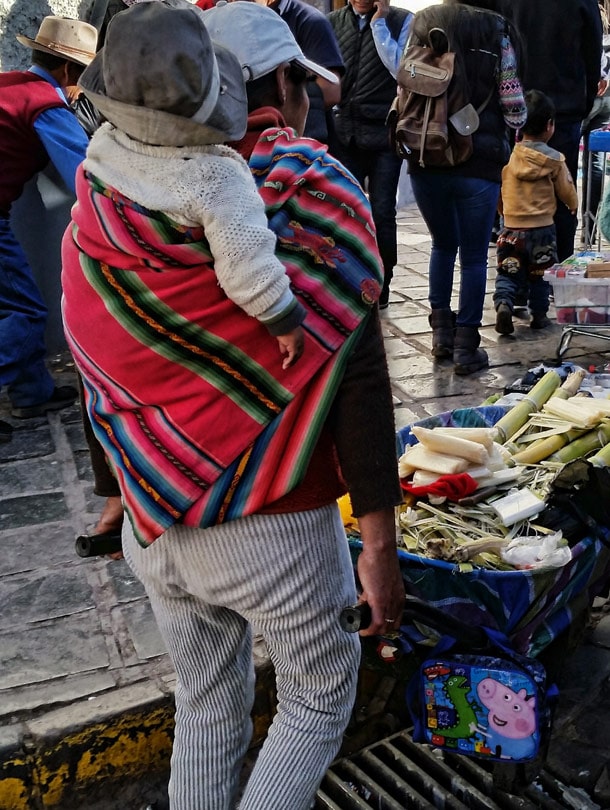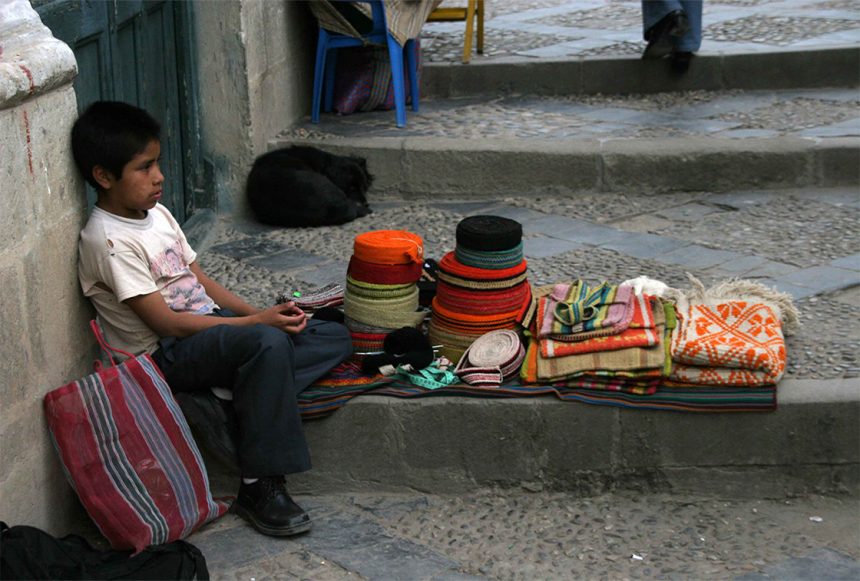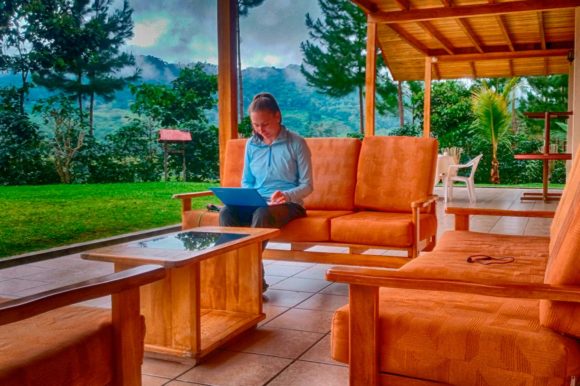Not only do Peruvian women literally carry their businesses on their backs, but some also have the added weight of childcare. Unfortunately, the ability to send children to kindergarten or day-care is not possible for a lot of women; therefore, the only way to take care of their children is to keep them by their side. This results in the children staying on the streets the whole day, playing with the products being sold by their mothers, or just having a nap. Often times, you will find them hidden somewhere among the products displayed on the street.

Oftentimes, when the children reach a certain age, they can fill in for their mothers in case she needs to leave her workplace for a while. Having literally grown up on the job, they quickly learn how to count, sell, and persuade shoppers to make a purchase (sometimes even better than their mothers would have been able to). This is particularly true with tourists, who can’t resist feeling pity for the young children working so hard.
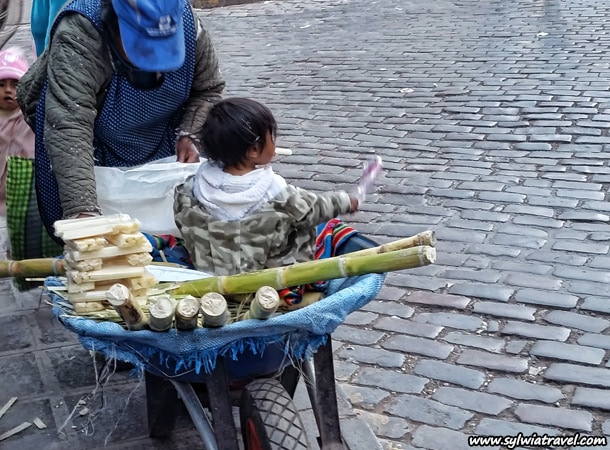
When seeing children in these conditions you might ask yourself whether it’s against their rights to have their best and educational years taken away from them. However, Peruvian law is specific with regards to child labor. The legal code allows children between the ages of 12-14 to work 4 hours per day and children between the ages of 15-17 to work 6 hours per day, assuming there is parental consent. Unfortunately, the enforcement of these laws are grey, so the actual amount of labor hours worked, as well as the ages of the children working, are not well-controlled. Additionally, in the case of any accidents, there is no real guaranteed protection or help.
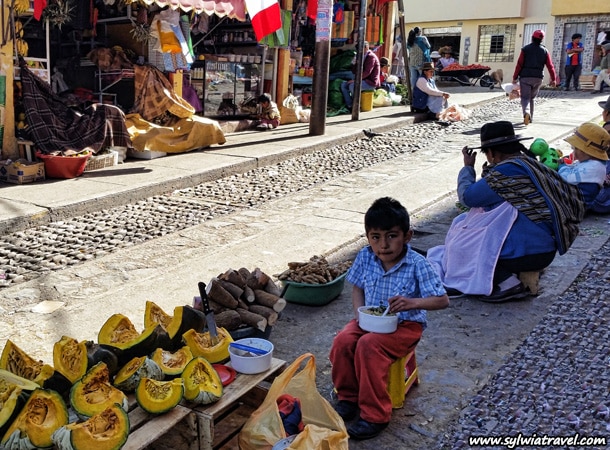
The mothers who raise them
You can’t help but be impressed by the tenacity of these strong women who manage everything while living and working in very basic conditions. Though at the same time, you may also wonder – where are the strong men and husbands? What are they doing while these women take care of so much? You would be hard-pressed to see even just one father carrying a manta with a baby in Peru. Is it because of chauvinism, fundamental trust issues, patriarchal tradition or unfamiliar circumstances – who knows? No matter the reason, it is simply inexplicable. Yet, the women don’t seem bothered or weakened by their situation and somehow continue to produce more offspring! It must be the sense of family that gives them the strength and power to overcome their daily challenges.
In the picture below you can see a woman selling Peruvian lemons. On her back is a colorful material called manta (you can read more about manta here and here). It may look normal from the outside, but inside the manta is a baby, sound asleep. The baby may be comfortable, but it is hard to believe that the mother feels the same way. Generally, carrying a child in a manta is more convenient than carrying them in your arms; but imagine you are at work all day having to bear your child weight on your back, throughout. How long can the backs of these mothers last if they continue with these states of affairs? It is one thing is to use the manta for a short period and another thing to use it every day for several hours at a time.
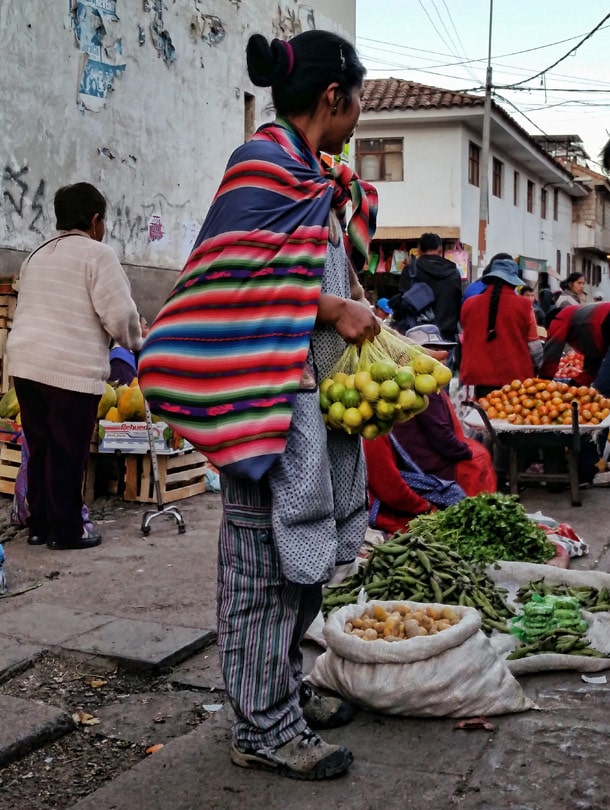
The photo below contains a similar story; a working woman with a slightly older child on her back.

These are not unique cases. esenyurt escort Among the Andean population, it is fairly common.
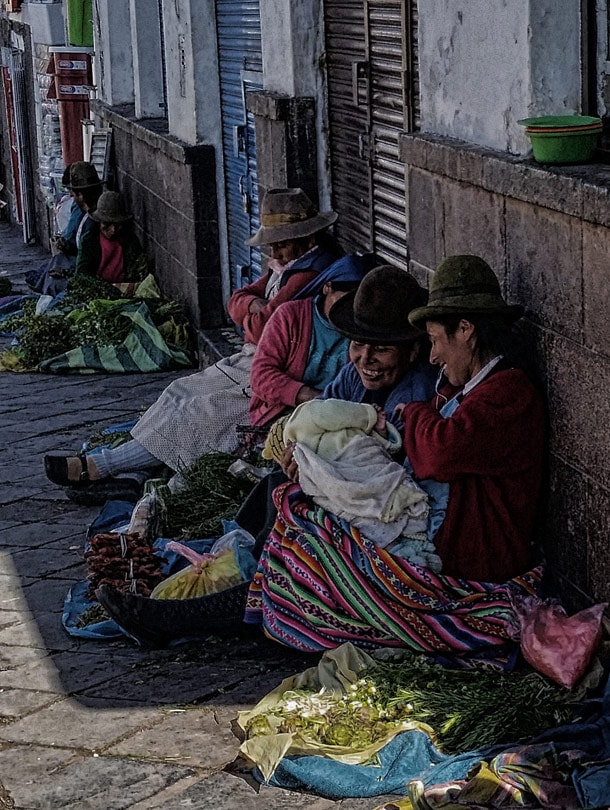
Of course, as I pointed out in the introduction, this situation is almost the norm. However, it is still something I find so bewildering that I decided to express my opinion on the matter in this article. It is still difficult for me to accept this aspect of Peruvian culture and life. However, I hope there will come a time where the babies will have more productive things to do than spend entire days with their parents at work! If you decide to travel to Peru and walk around the streets of Cusco, for example, you will see what I am talking about.

In the photo below, a mother with a child is selling CDs. As you can see, the girl in the hat is no longer just a baby, so you can only imagine what it’s like to stand up all day with this extra weight on her back.
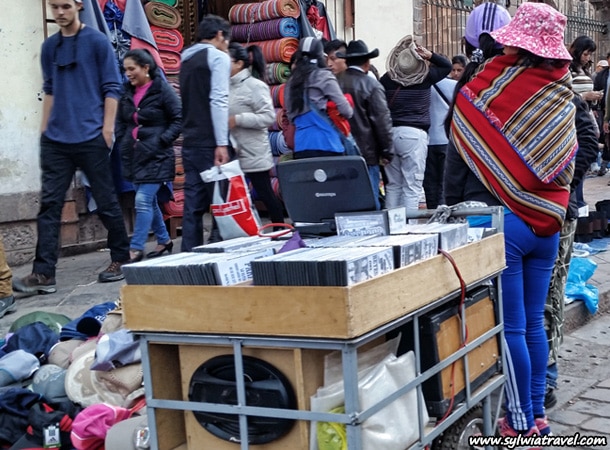
But there is also something that surprises me in a positive light. All these women who go to their jobs carrying their children for endless hours, do not complain. They are not sad or angry. They are extremely strong women who inspire me!
